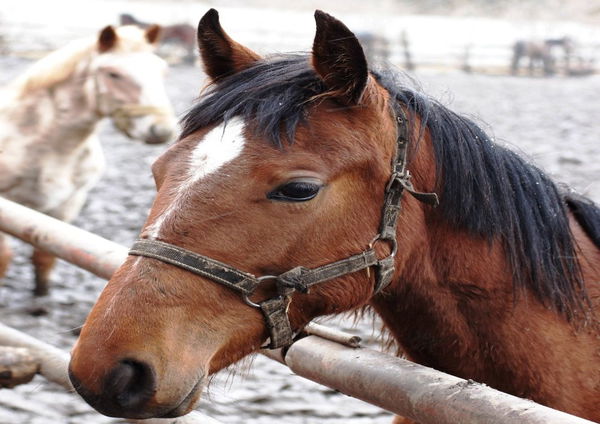

The question of whether a rider’s size affects a horse has been an equestrian topic of discussion and debate for centuries. In the early days, both horses and riders were smaller. The horses’ size averaged around 600 lbs. and the riders’ tipping the scales at approximately 120 lbs. However, over time, riders began carrying more equipment, leading to increased weight on the horse’s back. Author Colin Dangaard has mentioned in a write-up, a somewhat humorous “scientific study,” suggesting that a horse should not carry more than 10 percent of its own weight, a notion that, if taken seriously, would classify the majority of today’s riders as too heavy for their equine companions.
Historical and modern records, however, indicate that soldiers and their equipment regularly exceeded this limit, with some reaching a staggering 250 lbs. A recent viral post has now drawn the spotlight back on this debate with a bold update from an equestrian community on obese horse-riding Americans.
ADVERTISEMENT
Article continues below this ad
Bold move made by equestrian community on obese riders
A recent post on X, formerly known as Twitter, by a handle called Salvadoran Pride unveiled a deeply distressing image. The picture showed a chestnut-colored horse with a noticeable dip in its lower back, evoking immediate concern for the animal’s wellbeing. The accompanying caption, written in a bold and somber tone, sent shockwaves across the online equestrian community. It read, “El Salvador considers banning Obese Americans from posing for pictures on Horseback. ‘Por 50 likes me le jodieron el lomo al pobre animal’ says one local Equestrian.” This translates to “For 50 likes they f***** up the poor animal’s back”.
El Salvador considers banning Obese Americans from posing for pictures on Horseback. “Por 50 likes me le jodieron el lomo al pobre animal” says one local Equestrian. pic.twitter.com/b5ExsOJqcO
— Salvadoran Pride (@SalvadoranPride) September 5, 2023
Although there is no official update as of yet on the banning claim, the post has ignited a fiery discussion in the comments section. Individuals passionately condemned the apparent cruelty inflicted on the horse and pointed fingers at those responsible for its compromised condition. The debate also drew attention to a lingering question; can people be too heavy to ride horses?
Does weight play a significant role in horseback riding?
According to Colin Dangaard, the answer lies in the horse’s comfort and well-being. A rider is deemed too heavy for a particular horse if it displays clear signs of discomfort. These signs include reluctance to move forward, shorter strides, labored breathing within a short duration of riding, and difficulty ascending inclines. If any of these symptoms manifest, riding the horse is unequivocally not advisable.

ADVERTISEMENT
Article continues below this ad
It’s important to acknowledge that different horses have varying weight-bearing capacities due to their genetic makeup. Nonetheless, every horse has a limit, and it is imperative to respect this threshold to ensure their health and well-being. In the ongoing debate regarding rider weight, it’s essential to prioritize reality over statistics and agendas. While scientific studies provide valuable insights, a rider’s ability to move in harmony with the horse plays a pivotal role in determining whether they are too heavy to ride.
Read more: Popular Equestrian Achieves Rare Feat With Her Latest Colorful Venture
ADVERTISEMENT
Article continues below this ad
In conclusion, the question of rider size and its impact on horses is a complex and sensitive issue. While weight limits can provide some guidance, the horse’s comfort and well-being should remain paramount.
Watch this story: Lady Gaga’s $23 Million Equestrian Estate is the Ultimate Retreat
ADVERTISEMENT
ADVERTISEMENT
ADVERTISEMENT
ADVERTISEMENT

